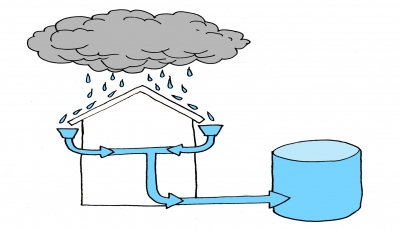Fostering Resource Performance and Environmental Management Through Liquid Waste Elimination Programs
In the realm of ecological stewardship, the administration of liquid waste stands as a vital juncture where source performance and environmental protection converge. With a lens of aggressive involvement and calculated insight, the landscape of liquid waste management unveils a tapestry of difficulties and possibilities that beckon us to check out the path towards a greener and even more sustainable future.
Relevance of Fluid Waste Removal
The importance of fluid waste removal hinges on its important role in protecting environmental health and guarding public health. Liquid waste, otherwise appropriately handled, can posture significant dangers to ecosystems, water sources, and human health. With efficient elimination processes, hazardous materials such as microorganisms, toxins, and chemicals are prevented from contaminating the environment and creating detrimental results.
Proper fluid waste removal additionally helps in stopping the spread of illness and reducing the capacity for groundwater contamination. By securely dealing with fluid waste, the threat of waterborne diseases and pollution-related health concerns is substantially lessened - Reclaim Waste. Additionally, effective elimination techniques contribute to keeping the general sanitation and visual appeals of neighborhoods, therefore improving the lifestyle for residents
Moreover, liquid waste elimination plays a vital duty in supporting sustainable development and making sure compliance with environmental guidelines. By adhering to correct waste administration businesses, methods and industries can reduce their environmental impact and show corporate responsibility. Eventually, buying durable liquid waste elimination programs is important for advertising ecological stewardship and fostering a healthier, more secure future for all.

Benefits of Efficient Disposal
Reliable disposal of fluid waste not only safeguards environmental health and wellness and public health however likewise yields countless benefits that prolong past immediate control measures. One vital advantage of reliable disposal is the reduction of air pollution in water bodies and dirt. By properly taking care of liquid waste, the danger of contamination reduces, guarding and protecting communities biodiversity. Additionally, reliable disposal practices add to resource preservation. With procedures like reusing and energy healing, useful sources can be extracted from liquid waste, promoting sustainability and lowering the strain on resources. In addition, taking on reliable disposal approaches can cause set you back financial savings for areas and companies. By optimizing waste monitoring procedures, organizations can enhance operations, decrease disposal expenditures, and potentially produce income with the sale of recycled materials. On the whole, the advantages of reliable fluid waste disposal are multifaceted, incorporating ecological protection, resource efficiency, and economic benefits.
Technologies for Waste Therapy
Utilizing advanced innovations for waste treatment plays an important role in making sure the efficient administration and secure disposal of fluid waste. One of the essential modern technologies employed in liquid waste therapy is biological therapy.
Advanced oxidation processes (AOPs) have actually acquired popularity for their capacity to deteriorate consistent natural toxins in liquid waste with the generation of extremely reactive hydroxyl radicals. Membrane layer technologies like reverse osmosis and ultrafiltration work for separating impurities from liquid waste streams. Furthermore, thermal therapy approaches such as incineration can be employed for the total damage of harmful parts in fluid waste. Generally, the assimilation of varied treatment modern technologies ensures environmentally friendly and thorough management of fluid waste.
Duty of Regulations and Compliance
In the realm of fluid waste management, adherence to regulatory frameworks and conformity standards is extremely important for guarding ecological health and sustainability. Rules play an important function in regulating the correct handling, treatment, and disposal of liquid waste to prevent injury to ecosystems and human health. By developing clear standards and standards, governing bodies ensure that businesses and individuals associated with fluid waste administration run in an environmentally accountable manner.
Compliance with these regulations is not just a legal need however also an ethical commitment to shield the environment for future and present generations. It entails applying ideal practices in waste collection, therapy, disposal, and transport to lessen environmental impact and promote resource effectiveness. Non-compliance can result in penalties, lawsuit, and reputational damages for companies, highlighting the value of maintaining governing standards.

Future Trends in Waste Management

One more crucial fad in waste administration is the fostering of sophisticated data analytics and synthetic intelligence to enhance waste collection courses, enhance sorting processes, and enhance total functional performance. These modern technologies enable waste administration firms to make data-driven choices, causing set you back savings and environmental benefits.
Moreover, there is an expanding emphasis on the development of decentralized waste monitoring systems, such as onsite therapy facilities and mobile waste processing units. These systems offer versatility and scalability, enabling much more efficient waste handling in varied atmospheres.
Verdict
To conclude, promoting source performance and environmental management through liquid waste removal programs is vital for lasting development. Efficient disposal approaches, progressed technologies for waste treatment, and rigorous policies play vital duties in minimizing ecological influence. Looking ahead, find constant technology and improvement in waste management practices will be crucial for attending to the growing difficulties of liquid waste disposal.
In the realm of environmental stewardship, the monitoring of fluid waste stands as an essential point where source efficiency and ecological protection merge (Reclaim Waste liquid waste removal).Utilizing sophisticated modern technologies for waste treatment plays an essential duty in check this making certain the effective management and safe disposal of fluid waste.In the realm of fluid waste monitoring, adherence to regulatory structures and compliance requirements is extremely important for protecting environmental health and sustainability.In verdict, promoting source performance and ecological security via fluid waste elimination programs is essential for sustainable development. Looking in advance, constant advancement and renovation in waste administration practices will certainly be crucial for attending to the growing challenges of liquid waste disposal